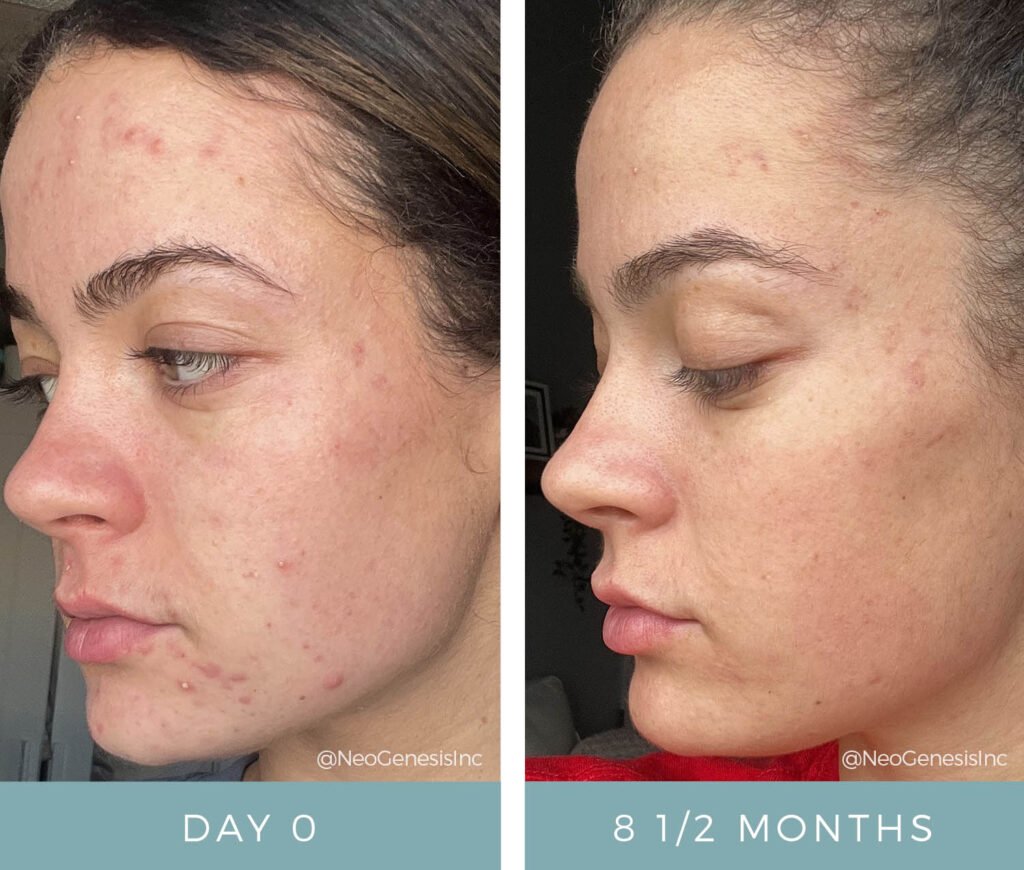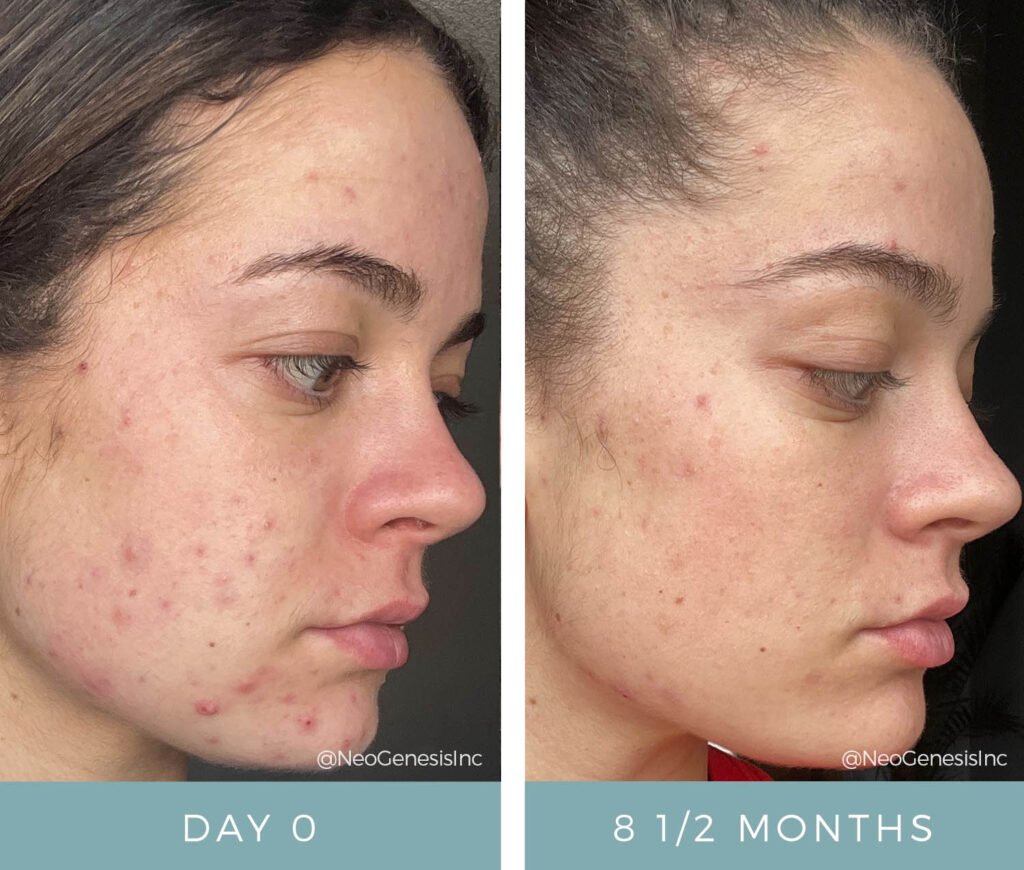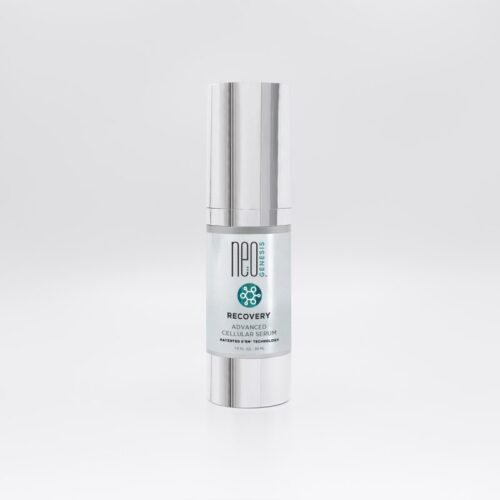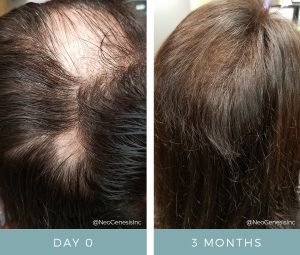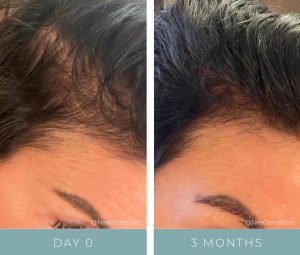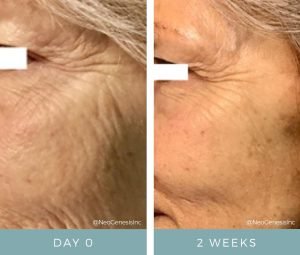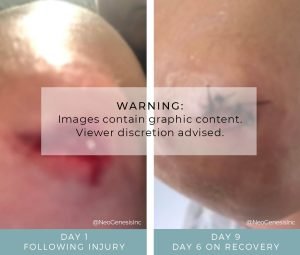
Hormonal Acne
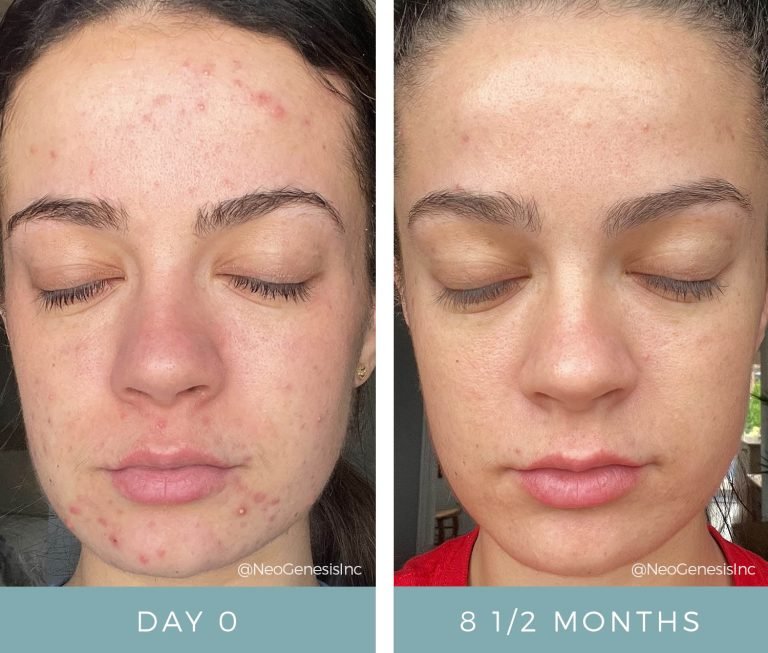
Treatment + Photos Courtesy of Professional Partner
Lisa Brascho

“My client has been struggling with acne for 8 years. She has a combination of hormonal acne and stress related breakouts. Her face is often very itchy, red and irritated. Within a week of using your products, her skin was already improving. In 2 months, she commented on how happy she was with her skin, and how she couldn’t believe the difference from the previous month. The inching has improved, and so had her skin texture. Now she is not wearing makeup (she usually uses concealer) and feels good.” – Christine Preston
Products Used
- Rated 5.00 out of 5$3.50 – $62.50 Select options This product has multiple variants. The options may be chosen on the product page
Acne, Aging Skin, Oncology Friendly, Recovery, Serums, Shop All
Rated 4.96 out of 5$62.00 – $395.00 Select options This product has multiple variants. The options may be chosen on the product page
Aging Skin, Barrier Cream, Barrier Renewal Cream, Moisturizers, Oncology Friendly, Shop All
Rated 5.00 out of 5$10.00 – $187.00 Select options This product has multiple variants. The options may be chosen on the product page
Acids, Acne, Mandelic Acid 8%, Oncology Friendly, Serums, Shop All, Skin Serums
Rated 4.87 out of 5$13.00 – $63.00 Select options This product has multiple variants. The options may be chosen on the product page
Protocol
Recovery 1x Daily (AM)
Cleanser, Recovery, Barrier Renewal Cream 1x Daily (PM)
Mandelic Acid 8% – 2-3x Weekly
Suggested Posts
Featured Videos
Hormonal Acne
Hormonal acne and stress related breakouts are two common types of skin issues that many people struggle with. These conditions can be frustrating and often difficult to manage, as they are influenced by various factors such as genetics, diet, lifestyle habits, and hormonal fluctuations.
Hormonal acne is a type of acne that is primarily caused by hormonal imbalances in the body. It typically occurs during puberty, pregnancy, and menopause when there is a significant increase in hormones such as estrogen and testosterone. These hormonal changes can lead to an overproduction of sebum (oil) in the skin, which can clog pores and result in acne breakouts.
Stress related breakouts, on the other hand, are caused by an increase in stress levels. When the body is under stress, it produces higher levels of cortisol and other hormones that can stimulate sebaceous glands to produce more oil. This excess oil production can lead to clogged pores and breakouts.
Both hormonal acne and stress related breakouts can be exacerbated by external factors such as diet and lifestyle habits. Consuming high amounts of dairy, sugar, and processed foods can contribute to hormonal imbalances and trigger acne breakouts. Lack of sleep, poor skincare habits, and exposure to environmental pollutants can also worsen these conditions.
Managing hormonal acne and stress related breakouts often requires a multifaceted approach. This may include incorporating a consistent skincare routine with gentle products that do not strip the skin of its natural oils. Eating a balanced diet that includes plenty of fruits, vegetables, and healthy fats can also help regulate hormone levels and improve the overall health of the skin.
In addition to these measures, managing stress levels is crucial in preventing stress related breakouts. Engaging in activities such as exercise, yoga, and meditation can help reduce stress and promote a healthier mind-body connection.



